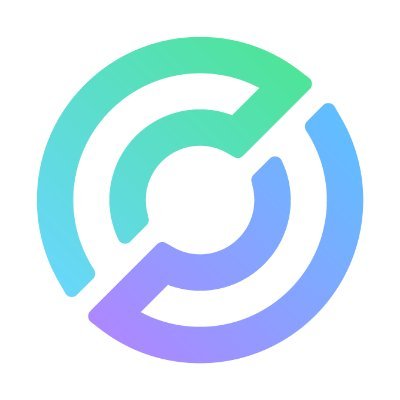Vergleichen Circle Wallet vs CoinSpot Wallet Wallet
In today's digital market, the trend of cryptocurrency has flooded the financial sector. With thousands of crypto coins available for trade, the necessity of a safe and secure digital wallet has gained paramount importance. The article will delve into a comparison between two major crypto-wallets - Circle Wallet and CoinSpot Wallet, to assist users in making an informed choice.
| Unternehmen | ||
|---|---|---|
| User rating | 5 Benutzerbewertungen | 16 Benutzerbewertungen |
| Cryptogeek rating | ||
| Vertrauenswertung Wie es funktioniert |
Über
|
Circle ist eine benutzerfreundliche Brieftasche, die die Möglichkeit bietet, digitales Geld zu kaufen, zu überweisen und zu sparen. Der vollständige Name der Anwendung war Circle Invest Wallet. Die mobile Version kann auf Google Play und Apple Store gefunden werden.
|
Coinspot Wallet ist ein besonderer Service von Coisnpot Exchange. Es bietet eine heiße Brieftasche für jede Münze, die seine Börse derzeit handelt. Neben Krypto unterstützt es auch den australischen Dollar. Derzeit hat CoinSpot Wallet mehr als 60 Münzen und Token. Eingebauter Austausch ist eine zusätzliche Funktion der Brieftasche sowie 2FA für die zusätzliche Sicherheit. Die einzige verfügbare Sprache ist Englisch.
|
Gründungsdatum
| 2013 | 2013 |
Land
| USA | Australia |
Sprachen
| English | English |
Wallet Typ
| Software wallet | Software wallet |
Speichertyp
| Cold wallet | Hot wallet |
Private Schlüssel
| Nicht verfügbar | Nicht verfügbar |
Verfügbare Münzen
| 6 - Bitcoin (BTC), USD Coin (USDC), Ethereum (ETH), Stellar (XLM), Algorand (ALGO), Solana (SOL) | 149 - Bitcoin (BTC), Basic Attention Token (BAT), IOTA (MIOTA), Tezos (XTZ), Ethereum Classic (ETC), NEO (NEO), VeChain (VET), OmiseGO (OMG), Qtum (QTUM), Verge (XVG), Lisk (LSK), ICON (ICX), Ontology (ONT), Bitcoin Gold (BTG), Zcash (ZEC), Nano (NANO), Populous (PPT), Bytecoin (BCN), Steem (STEEM), Wanchain (WAN), Siacoin (SC), Dogecoin (DOGE), Waves (WAVES), Zilliqa (ZIL), Decred (DCR), Aeternity (AE), Status (SNT), 0x (ZRX), Loopring (LRC), Komodo (KMD), Aion (AION), Golem (GNT), Ardor (ARDR), IOST (IOST), DigiByte (DGB), Ark (ARK), Waltonchain (WTC), aelf (ELF), PIVX (PIVX), Factom (FCT), Dragonchain (DRGN), Substratum (SUB), Mithril (MITH), Syscoin (SYS), Gas (GAS), Elastos (ELA), Voyager Token (VGX), FunFair (FUN), Nxt (NXT), Nebulas (NAS), Nucleus Vision (NCASH), OByte (GBYTE), ReddCoin (RDD), Revain (REV), WAX (WAX), SALT (SALT), Electroneum (ETN), MaidSafeCoin (MAID), Power Ledger (POWR), Zcoin (XZC), Enigma (ENG), Storj (STORJ), TenX (PAY), Neblio (NEBL), Cindicator (CND), Skycoin (SKY), Horizen (ZEN), Civic (CVC), SingularityNET (AGI), POA Network (POA), Nexus (NXS), GameCredits (GAME), Dent (DENT), Vertcoin (VTC), Quantstamp (QSP), iExec RLC (RLC), Decentraland (MANA), Polymath (POLY), Po.et (POE), Loom Network (LOOM), NULS (NULS), Enjin Coin (ENJ), Raiden Network Token (RDN), Metal (MTL), Arcblock (ABT), Pundi X (NPXS), SIRIN LABS Token (SRN), Bluzelle (BLZ), Genesis Vision (GVT), THETA (THETA), NavCoin (NAV), Gifto (GTO), Comet (CMT), AirSwap (AST), OST (OST), Scry.info (DDD), Ripio Credit Network (RCN), Streamr DATAcoin (DATA), Quantum Resistant Ledger (QRL), AdEx (ADX), UTRUST (UTK), Einsteinium (EMC2), Ambrosus (AMB), Groestlcoin (GRS), WePower (WPR), Peercoin (PPC), Crypterium (CRPT), USD Coin (USDC), Ripple (XRP), Binance Coin (BNB), Bitcoin Cash (BCH), Bitcoin SV (BSV), Cardano (ADA), Cosmos (ATOM), Dash (DASH), EOS (EOS), Ethereum (ETH), Litecoin (LTC), Monero (XMR), NEM (XEM), Stellar (XLM), Tether (USDT), Tron (TRX), Polkadot (DOT), BitTorrent (BTT), Terra (LUNA), pTokens BTC (PBTC), Crypto.com Coin (CRO), Filecoin (FIL), FTX Token (FTT), Kusama (KSM), Algorand (ALGO), NEAR Protocol (NEAR), Ocean Protocol (OCEAN), Celo (CELO), Energy Web Token (EWT), Quant (QNT), Hedera Hashgraph (HBAR), Solana (SOL), Helium (HNT), IoTeX (IOTX), TomoChain (TOMO), Chiliz (CHZ), Ankr (ANKR), IRISnet (IRIS), SUN (SUN), Hive (HIVE), Unibright (UBT), Fantom (FTM) |
Sicherheit
| Keine Daten | Keine Daten |
Anonymität
| Keine Daten | Keine Daten |
Benutzerfreundlichkeit
| Keine Daten | Keine Daten |
Hat Karte angehängt
| Keine Daten | Keine Daten |
Hat Handelsmöglichkeiten
| Keine Daten | Keine Daten |
Hat Gutscheine und Angebote
| Keine Daten | Keine Daten |
Eigenschaften
| Keine Daten | Keine Daten |
| Über |
Circle ist eine benutzerfreundliche Brieftasche, die die Möglichkeit bietet, digitales Geld zu kaufen, zu überweisen und zu sparen. Der vollständige Name der Anwendung war Circle Invest Wallet. Die mobile Version kann auf Google Play und Apple Store gefunden werden.
|
Coinspot Wallet ist ein besonderer Service von Coisnpot Exchange. Es bietet eine heiße Brieftasche für jede Münze, die seine Börse derzeit handelt. Neben Krypto unterstützt es auch den australischen Dollar. Derzeit hat CoinSpot Wallet mehr als 60 Münzen und Token. Eingebauter Austausch ist eine zusätzliche Funktion der Brieftasche sowie 2FA für die zusätzliche Sicherheit. Die einzige verfügbare Sprache ist Englisch.
|
|---|---|---|
| Gründungsdatum | Gründungsdatum 2013 | Gründungsdatum 2013 |
| Land | Land USA | Land Australia |
| Sprachen | Sprachen English | Sprachen English |
| Wallet Typ | Wallet Typ Software wallet | Wallet Typ Software wallet |
| Speichertyp | Speichertyp Cold wallet | Speichertyp Hot wallet |
| Private Schlüssel | Private Schlüssel Nicht verfügbar | Private Schlüssel Nicht verfügbar |
| Verfügbare Münzen | Verfügbare Münzen 6 - Bitcoin (BTC), USD Coin (USDC), Ethereum (ETH), Stellar (XLM), Algorand (ALGO), Solana (SOL) | Verfügbare Münzen 149 - Bitcoin (BTC), Basic Attention Token (BAT), IOTA (MIOTA), Tezos (XTZ), Ethereum Classic (ETC), NEO (NEO), VeChain (VET), OmiseGO (OMG), Qtum (QTUM), Verge (XVG), Lisk (LSK), ICON (ICX), Ontology (ONT), Bitcoin Gold (BTG), Zcash (ZEC), Nano (NANO), Populous (PPT), Bytecoin (BCN), Steem (STEEM), Wanchain (WAN), Siacoin (SC), Dogecoin (DOGE), Waves (WAVES), Zilliqa (ZIL), Decred (DCR), Aeternity (AE), Status (SNT), 0x (ZRX), Loopring (LRC), Komodo (KMD), Aion (AION), Golem (GNT), Ardor (ARDR), IOST (IOST), DigiByte (DGB), Ark (ARK), Waltonchain (WTC), aelf (ELF), PIVX (PIVX), Factom (FCT), Dragonchain (DRGN), Substratum (SUB), Mithril (MITH), Syscoin (SYS), Gas (GAS), Elastos (ELA), Voyager Token (VGX), FunFair (FUN), Nxt (NXT), Nebulas (NAS), Nucleus Vision (NCASH), OByte (GBYTE), ReddCoin (RDD), Revain (REV), WAX (WAX), SALT (SALT), Electroneum (ETN), MaidSafeCoin (MAID), Power Ledger (POWR), Zcoin (XZC), Enigma (ENG), Storj (STORJ), TenX (PAY), Neblio (NEBL), Cindicator (CND), Skycoin (SKY), Horizen (ZEN), Civic (CVC), SingularityNET (AGI), POA Network (POA), Nexus (NXS), GameCredits (GAME), Dent (DENT), Vertcoin (VTC), Quantstamp (QSP), iExec RLC (RLC), Decentraland (MANA), Polymath (POLY), Po.et (POE), Loom Network (LOOM), NULS (NULS), Enjin Coin (ENJ), Raiden Network Token (RDN), Metal (MTL), Arcblock (ABT), Pundi X (NPXS), SIRIN LABS Token (SRN), Bluzelle (BLZ), Genesis Vision (GVT), THETA (THETA), NavCoin (NAV), Gifto (GTO), Comet (CMT), AirSwap (AST), OST (OST), Scry.info (DDD), Ripio Credit Network (RCN), Streamr DATAcoin (DATA), Quantum Resistant Ledger (QRL), AdEx (ADX), UTRUST (UTK), Einsteinium (EMC2), Ambrosus (AMB), Groestlcoin (GRS), WePower (WPR), Peercoin (PPC), Crypterium (CRPT), USD Coin (USDC), Ripple (XRP), Binance Coin (BNB), Bitcoin Cash (BCH), Bitcoin SV (BSV), Cardano (ADA), Cosmos (ATOM), Dash (DASH), EOS (EOS), Ethereum (ETH), Litecoin (LTC), Monero (XMR), NEM (XEM), Stellar (XLM), Tether (USDT), Tron (TRX), Polkadot (DOT), BitTorrent (BTT), Terra (LUNA), pTokens BTC (PBTC), Crypto.com Coin (CRO), Filecoin (FIL), FTX Token (FTT), Kusama (KSM), Algorand (ALGO), NEAR Protocol (NEAR), Ocean Protocol (OCEAN), Celo (CELO), Energy Web Token (EWT), Quant (QNT), Hedera Hashgraph (HBAR), Solana (SOL), Helium (HNT), IoTeX (IOTX), TomoChain (TOMO), Chiliz (CHZ), Ankr (ANKR), IRISnet (IRIS), SUN (SUN), Hive (HIVE), Unibright (UBT), Fantom (FTM) |
| Sicherheit | Sicherheit Keine Daten | Sicherheit Keine Daten |
| Anonymität | Anonymität Keine Daten | Anonymität Keine Daten |
| Benutzerfreundlichkeit | Benutzerfreundlichkeit Keine Daten | Benutzerfreundlichkeit Keine Daten |
| Hat Karte angehängt | Hat Karte angehängt Keine Daten | Hat Karte angehängt Keine Daten |
| Hat Handelsmöglichkeiten | Hat Handelsmöglichkeiten Keine Daten | Hat Handelsmöglichkeiten Keine Daten |
| Hat Gutscheine und Angebote | Hat Gutscheine und Angebote Keine Daten | Hat Gutscheine und Angebote Keine Daten |
| Eigenschaften | Eigenschaften Keine Daten | Eigenschaften Keine Daten |
Sozial
Webseite
| www.circle.com | twitter.com |
| @circlepay | CoinSpot |
| Webseite | Webseite www.circle.com | Webseite twitter.com |
|---|---|---|
| Twitter @circlepay | Twitter CoinSpot |
Vorteile
| - 13 Krypto-Münzen | - Einfach zu bedienen und sicher - Vertrauenswürdige |
Nachteile
| - Risiken im Zusammenhang mit Investitionen | - Die Plattform kann nur von australischen Einwohnern genutzt werden - Eine Einzahlung mit einer Karte hat eine Gebühr von 1% |
Bewertung
| User rating | User rating 5 Benutzerbewertungen | User rating 16 Benutzerbewertungen |
|---|---|---|
| Cryptogeek rating | Cryptogeek rating | Cryptogeek rating |
| Vorteile | Vorteile - 13 Krypto-Münzen | Vorteile - Einfach zu bedienen und sicher - Vertrauenswürdige |
| Nachteile | Nachteile - Risiken im Zusammenhang mit Investitionen | Nachteile - Die Plattform kann nur von australischen Einwohnern genutzt werden - Eine Einzahlung mit einer Karte hat eine Gebühr von 1% |
Circle Wallet Benutzerbewertung ist 4.8, basierend auf 5 Benutzerbewertungen. CoinSpot Wallet Benutzerbewertung ist 4.3, basierend auf 16 Benutzerbewertungen.
We also calculate the special Cryptogeek TrustScore based on the characteristics of each wallet.
| Wir wählen den Gewinner basierend auf unserer Vertrauenswertung. Bitte denken Sie daran, es liegt immer noch an Ihnen, welches Unternehmen Sie wählen! Wie berechnen wir den Vertrauensfaktor? |
In conclusion, both Circle Wallet and CoinSpot Wallet have their unique features and offerings in terms of currency support, fees, security, and customer support. Your individual requirements as for a user will play a critical role in deciding which one is a better fit. It is important to perform extensive research and weigh up the pros and cons before making a final decision. Remember, the crypto world is thrilling but also volatile, due care must be taken while diving into it.
In today's digital market, the trend of cryptocurrency has flooded the financial sector. With thousands of crypto coins available for trade, the necessity of a safe and secure digital wallet has gained paramount importance. The article will delve into a comparison between two major crypto-wallets - Circle Wallet and CoinSpot Wallet, to assist users in making an informed choice.

